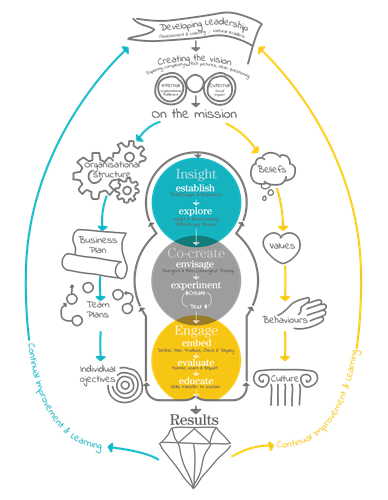
One thing the ICE insight team find is that a tenant’s experience of reactive repairs clouds their view of many other services supplied by the housing provider. Further, this insight also shows that tenants will not strive for or achieve personal growth (in skills, wellbeing, employment etc) when the basics are not right. Repairs are one of these basic requirements; this is true whether it’s a local authority or a housing association.
The quotes below are from our insight work with a housing association and are not unusual:
“I’ve been trying to get this leak fixed in my roof. They said I should talk to them, but they have been a pain.”
“It’s bad… we had about an eight week battle to get the patio doors fixed.”
ICE is currently working within the sector to help organisations enhance the services and support provided to tenants, and to understand the benefits that a tenant focused repairs service can deliver. It’s worth remembering that reporting a repair is the most common interaction between tenants and their housing provider, and we all know how important that relationship is to both parties.
Working with Nuneaton and Bedworth Borough Council, our service review identified that over 30% of contacts received were from tenants chasing the progress of their repair. This volume was higher than those contacts where tenants reported a repair. This one statistic alone gives real insight into how tenants perceive the service they are provided with, and was the catalyst for the council’s desire to transform.
Here’s how it worked…
The work was based on the ICE model for service transformation, where our experienced practitioners help staff transform their own services - after all, “those who create, own”.
It began with stakeholder meetings designed to set up the work cleanly by building relationships across the service and with wider stakeholders to ensure the most value from the review.
Then followed the explore stage, where a team representing the whole of the service was brought together to create a current state map. This visual representation of the in-scope work included the demands placed on the service by its customers, the flow of work and data to show the performance of the systems, as well as details of the root cause of reactive repairs.
The envisage stage then allowed the team to present these findings back to the wider stakeholder group at a vision workshop, ranging from tenant representatives to the executive management team. It was at this event that areas for improvement were agreed, and buy-in from across the organisation was gained. This buy-in was vital to ensure that any changes would be sustained in the future.
Through a period of experimentation, operatives, charge-hands and team managers were given the ability to use innovative solutions to the issues they faced. They used an agreed methodology that built upon the principles of systems thinking to guide them, and measured the changes made against an agreed set of customer focused performance measures.
What did it achieve?
As well as virtually eliminating the failure demand chasing the progress of a repair, the team has reduced the time for reporting to completing the repair by over 50%, with plumbing repairs now running at an average of less than 2 days.
Reduced repair times have also had a knock-on effect to the “no access rate”, which had been a major cause of waste within the system.
It is still early days, and January sees a period where ICE will support the services to embed these changes and make them business as usual.
For more information contact Chris.Lunn@icecreates.com 0151 647 04700
 collective voice
collective voice